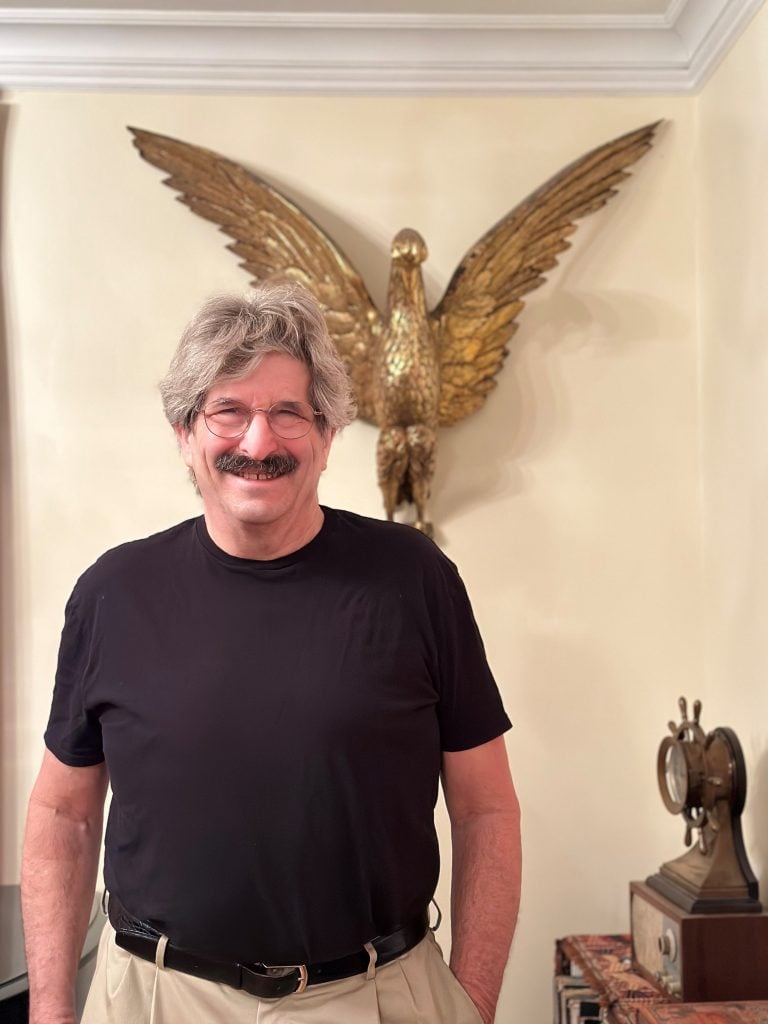Gary Ruvkun
Interview
First reactions. Telephone interview, October 2024
“It’s going to be a fun ride!”
“I heard what sounded like an authentic call from the Nobel Committee!” 2024 medicine laureate Gary Ruvkun might have received a prank call or two in the past, but this one was genuine. Minutes after hearing the news, he talked about the pleasure of finding things out, the electrifying growth of the microRNA field over the years, and the benefits of taking time out.
Interview transcript
Gary Ruvkun: Hello?
Adam Smith: Hello, Am I speaking with Gary Ruvkun?
GR: Yes you are.
AS: This is Adam Smith calling from the website of the Nobel Prize.
GR: Hi, Adam!
AS: Hi! Many, many congratulations!
GR: Thank you!
AS: So you just got the call from the committee a few minutes ago, what happened?
GR: I heard what sounded like an authentic call from the Nobel Committee! [Laughter] There’s always a chance that it’s one of my friends.
AS: Yes! Have your friends played pranks on you in the past?
GR: Well, I best not say. But you know the call from Stockholm is mythic in the world of science, and I’m sure it is in literature too, and maybe even the peace prize people pull pranks on each other; although I doubt it!
AS: We think they might be too serious for that sort of thing yes.
GR: I think they’re very serious.
AS: What were your first thoughts when you heard?
GR: Well, just surprise and you know “Oh boy, it’s going to be a fun ride!”
AS: Yes, when you and Victor Ambros made the discovery of an entirely new mechanism for regulating gene expression, the thought must have occurred to you that it was Nobel worthy.
GR: No. No, no, no, at that moment it was just the quirky, what we were working on, it was really interesting. We were young faculty members wanting to make sure we were successful at the next stage of our careers. We weren’t thinking that this is going to win a Nobel Prize, we were thinking this is really interesting. As the field exploded, which is just a joy to watch, then there was a sense that this is the sort of field, the sort of sea-change that gets awards and things. But that took a long time and was an unbelievable pleasure to watch, to participate in. The talent that got attracted to the field was magnificent. And the meetings with, you know, two hundred or three hundred people were electrifying, and still are great.
AS: It’s really lovely to hear the way you say how exciting it is to see the field build, because in some ways you might think the opposite, you might think, “I like having these niche areas to myself,” and it’s great. But it emphasises the social side of the whole thing.
GR: Oh yes, there’s a lot of interchange.
AS: One nice thing about you is that you took this career break between an undergraduate and a graduate, and going to grad school. You just went travelling, planting trees. It’s nice for people, it’s not nonstop, you can take time to reflect.
GR: Oh yes, and that was an era where this linear path to career, career, career, was sort of not the norm. Although I wouldn’t advocate it for everybody because there was a lot of carnage in the process in my generation. But yes, for me, I lived in my van for a year in the mountains of Oregon, planting trees and then traveled all through Latin America. I think one of the things is that I had a lot of stories to tell. You know it helps to have entertaining stories. I think for people coming to my lab, this is like a different experience talking to me.
AS: Let me finish by asking how much you think it made a difference training with the right people? Because when you did your postdoc training with Wally Gilbert and Bob Horvitz.
GR: Yes, they were super important.
AS: How much did they teach you if you like just to keep your eyes open for important questions. I suppose that might be the key?
GR: Well, these are role models for how to be a scientist and how to think about big problems. I was inspired by them and even by people I didn’t know, people I would see in the hallways. As an undergrad I studied physics at Berkeley, and I was surrounded by these mythic physicists who were so important. It’s a sea-change that you don’t expect coming right out of high school and all of a sudden you’re seeing people at the top of their game and it’s all they think about.
AS: What an amazing introduction to science, extraordinary. Thank you so much Gary.
GR: Thank you Adam.
AS: Do you think it’s possible that you could send me a photograph? Is there somebody with you that could take a photograph of you right now and send it to me?
GR: Oh God, I’m having a bad hair day, but I can do it within two or three hours. How’s that?
AS: Honestly, we’ve had laureates in pyjamas, we’ve had laureates in all sorts of lovely scenes.
GR: Ok, we’ll take a picture.
AS: Lovely! Thank you so much.
GR: Thanks Adam.
AS: Congratulations again.
GR: Thank you, bye.

Did you find any typos in this text? We would appreciate your assistance in identifying any errors and to let us know. Thank you for taking the time to report the errors by sending us an e-mail.
Nobel Prizes and laureates
Six prizes were awarded for achievements that have conferred the greatest benefit to humankind. The 12 laureates' work and discoveries range from proteins' structures and machine learning to fighting for a world free of nuclear weapons.
See them all presented here.
